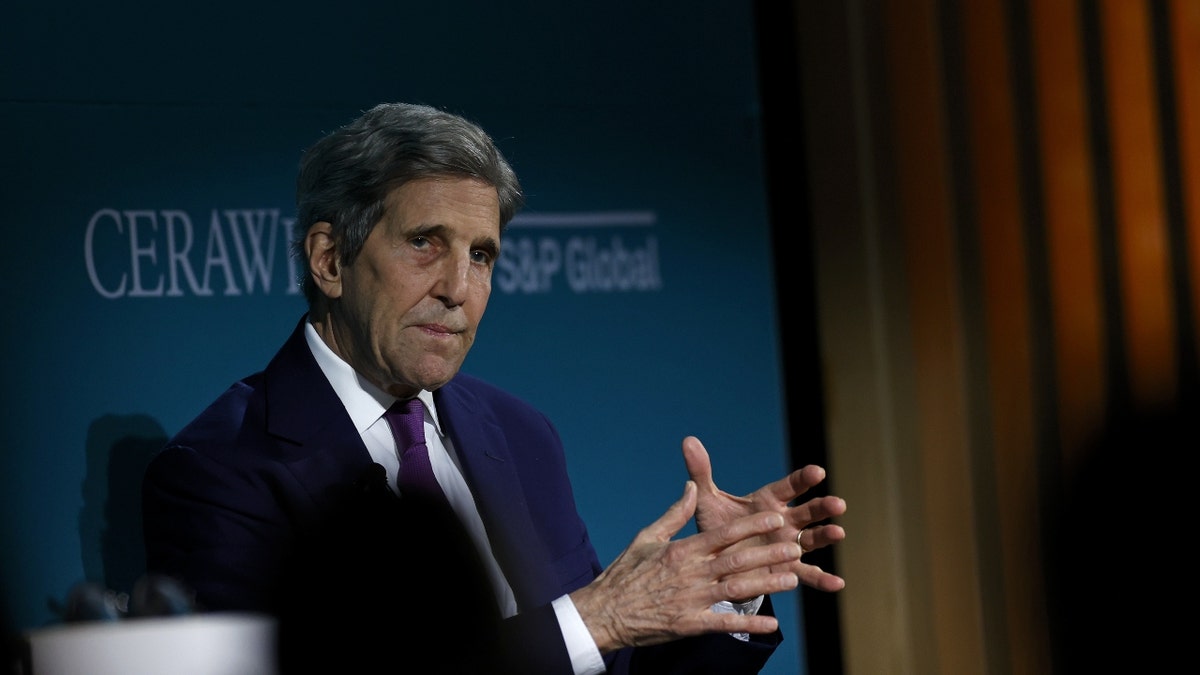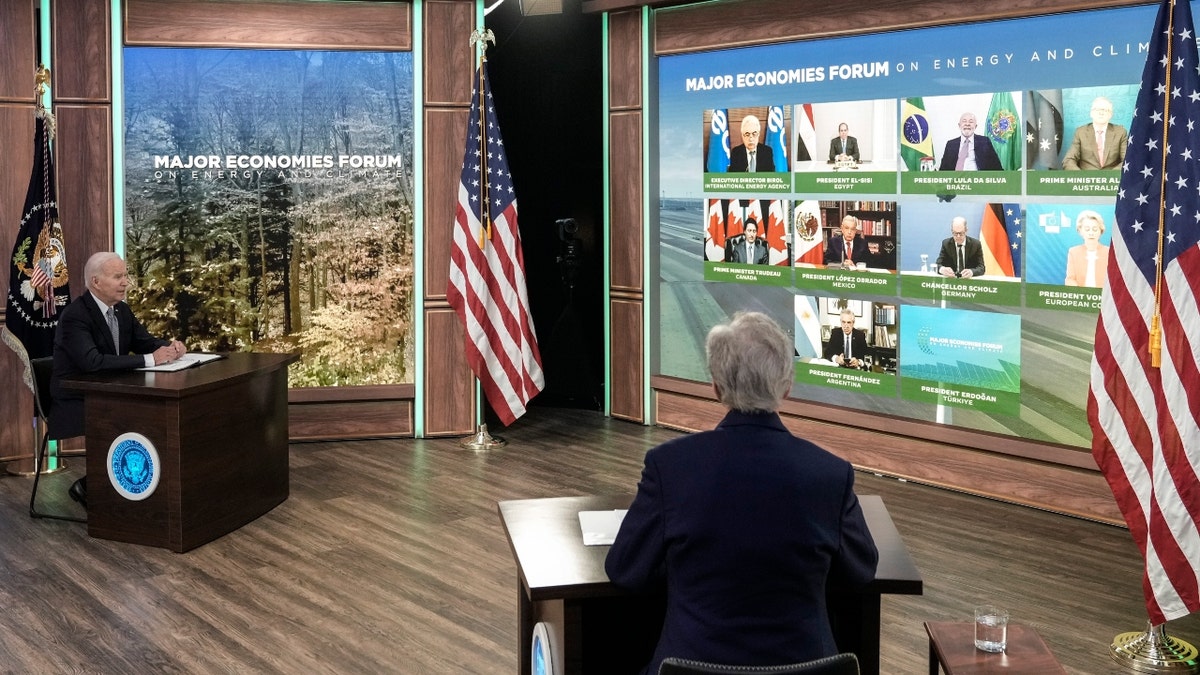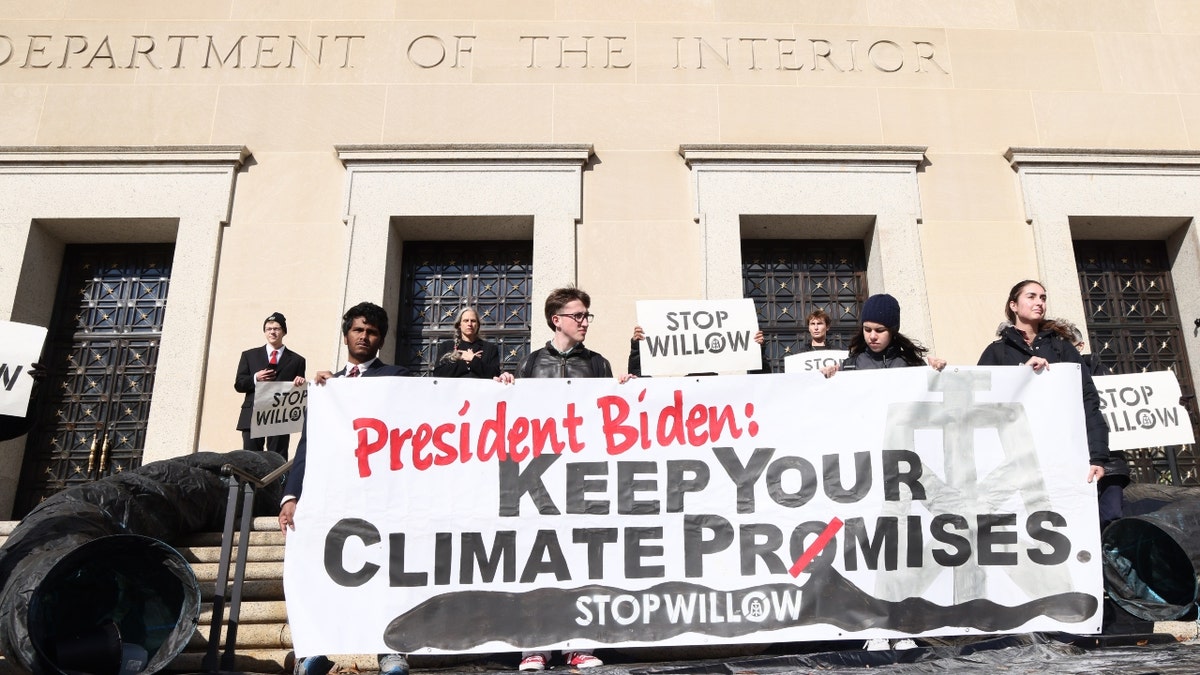Kamala Harris issues dire climate change warning in Africa: 'Existential threat to the entire planet'
Vice President Kamala Harris on Saturday in Zambia called climate change an "existential threat to the entire planet."
Ahead of Earth Day, Special Presidential Envoy for Climate John Kerry asserted Friday that the U.S. and China must work together in order to combat the global climate crisis.
"There’s no way that any one country can solve this crisis," he told MSNBC, "and, particularly, if we are large emitting nations."
"So it is imperative that China and the United States find a way to cooperate with respect to the climate crisis."
The former secretary of state said while President Biden and Chinese leader Xi Jinping had agreed to "keep the climate issue separate," recent tensions regarding the issue of Taiwan have thrown a wrench in discussions.
BIDEN PLEDGES $1B MORE IN US FUNDING FOR UN'S GREEN CLIMATE FUND

John Kerry, U.S. special presidential envoy for climate, speaks during the 2023 CERAWeek by S&P Global conference in Houston, Texas, on Monday, March 6, 2023. (Aaron M. Sprecher/Bloomberg via Getty Images)
"My hope is, because it’s imperative for the planet, that China … [helps] work with the United States. And it’s not a question of the U.S. giving away something. It’s a question of all of us getting something together," he said, stressing the need to reduce emissions.
"Everybody understands that in the world – that the emissions are the problem. It's the way we burn our fuel. It's the way we heat our homes. It's the way we move our vehicles," Kerry added.
Kerry noted that Biden had hosted the 20 major economies of the world in discussing steps they had taken to further this universal push.
"It's just that we're not, all of us, doing enough, and we're not doing enough fast enough," he said.

President Biden and Special Presidential Envoy for Climate John Kerry participate in a virtual meeting of the Major Economies Forum (MEF) on Energy and Climate in the South Court Auditorium on the White House campus April 20, 2023, in Washington, D.C. (Drew Angerer/Getty Images)
Kerry also addressed criticism over the administration's move to approve the controversial $8 billion-dollar Willow project in March. The massive drilling plan by oil giant ConocoPhillips could produce up to 180,000 barrels of oil a day on Alaska’s petroleum-rich North Slope.
CALIFORNIA RESEARCHERS WORKING ON NEW OCEAN-BASED CLIMATE SOLUTION
Andrea Mitchell asked Kerry whether such a move was an indication of a reversal of the pledge to move away from fossil fuels.
Kerry said the president had faced a situation where the company "had a right to go ahead" after legitimately purchasing leases 10 or more years ago.
"Now, what they're going to do was going to happen for some period of time – it just doesn't happen that fast," he said, adding that more electric vehicles will send the demand for gasoline and oil use plummeting.

Climate activists hold a demonstration to urge President Biden to reject the Willow Project at the U.S. Department of Interior on Nov. 17, 2022, in Washington, D.C. (Jemal Countess/Getty Images for Sunrise AU)
"What is in Willow is miniscule, compared to the overall demand challenge that we face," Kerry continued. " And, the key here is to move faster in changing demand and changing supply and in bringing online the new technologies that can scale up and make the difference. That's how we win this battle."
"We’re not going to say we’re not going to use gas and oil. That’s not reality,″ Interior Secretary Deb Haaland told the Society of Environmental Journalists on Friday. "So we are doing the best we absolutely can.″
CLICK HERE TO GET THE FOX NEWS APP
Despite Biden's campaign promise to end new drilling on federal lands, she said the administration is "following the science and the law" and is "not going to turn the faucet off and say we’re not drilling anymore.″
To prevent the worst of the future harms of climate change, the head of the United Nations recently called for an end to new fossil fuel exploration and for rich countries to quit using coal, oil and gas by 2040.
The Associated Press contributed to this report.














































